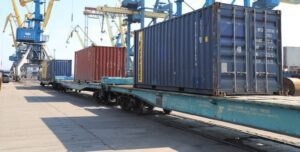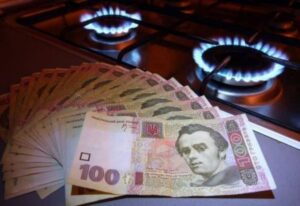
Ukraine and Egypt may decide to start negotiations on a free trade area (FTA) this fall, said Deputy Minister of Economy and Trade Representative of Ukraine Taras Kachka.
“We are negotiating with Egypt, but soon the conversation fades. We hope that this fall we will hold an intergovernmental commission, and I hope we will take a decision to start negotiations,” Kachka said during the Kyiv International Economic Forum in Kyiv on Friday.
He also indicated that Ukraine and Indonesia have begun studying potential FTA talks.

The Verkhovna Rada has supported the appointment of Ruslan Stefanchuk, who previously held the post of First Deputy Speaker, to the post of Chairman of the Parliament.
The corresponding decision was supported by 261 MPs at a plenary session on Thursday.

NJSC Naftogaz Ukrainy has funds for the purchase and subsequent injection of natural gas into underground gas storage facilities (UGS), Ukrainian Energy Minister Herman Haluschenko has said.
“Naftogaz has been provided with the appropriate financial resources to continue accumulating gas further,” he said during a government meeting.
Earlier, the Ministry of Energy said that Ukraine plans to start the heating season 2021/2022 with 19.2 billion cubic meters in UGS.
According to the Interfax-Ukraine agency, Naftogaz will receive funds from Gas Transmission System Operator of Ukraine under the compensation agreement with Ukrtransgaz, recommended by the Cabinet of Ministers of Ukraine for signing in accordance with resolution No. 1187-r dated September 29, 2021.

A modern container terminal could be built in the port of Mariupol (Donetsk region) on the territory of the former coal-loading complex, Ihor Barsky, the head of Mariupol seaport.
“In the long term, we have a dream: to turn the territory of the former coal loading complex of the seaport into a modern container terminal,” he said during the NewPort international exhibition in Kyiv.
Barsky recalled that since 2015, the container flow in the Sea of Azov has been completely stopped. Container lines stopped making calls to Azov after the imposition of European and American sanctions on Crimea.
“Now we are working to return container traffic to Azov. We are supported in this issue by the city, the region, the Ministry of Infrastructure. This is a difficult task, but solvable,” he said.
According to him, at present the port has pre-design studies of this terminal, in the future a feasibility study will be ordered.
“Now we are liquidating the loading complex, selling the equipment that is there, and preparing this serious investment site. How much it will cost – I can’t say yet. We can talk about this when the feasibility study is completed,” Barsky summed up.

The price of the nearest (November) futures for TTF on the ICE Futures exchange on Wednesday afternoon reached 161 euros per MWh, or $1,924/1,000 cubic meters, according to exchange data.
Only this morning, the price of November futures topped $1,500/1,000 cubic meters.
All in all, the average value of the day-ahead contract at the TTF hub in the Netherlands, Europe’s main gas platform, was $759/1,000 cubic meters in September.
Europe, with a general shortage of gas supplies (by pipeline and in liquefied form), is being forced to compete for LNG with the premium Asian market.
Gas prices in Europe have recently had had an inextricable impact on Gazprom share prices.